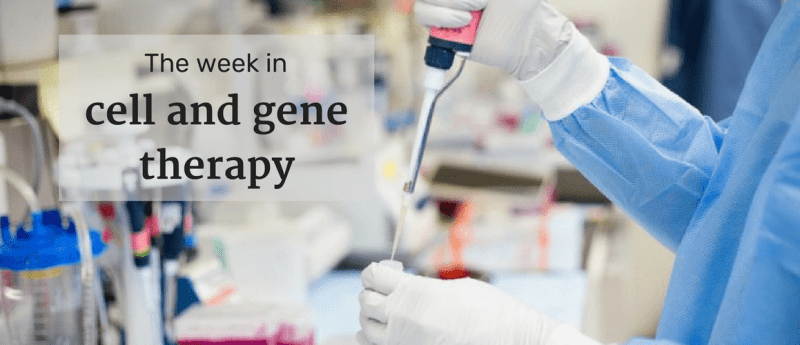Cell therapy weekly: Candidate drug receives US$120M in funding for late-stage testing

Mogrify relocates to the Bio-Innovation Centre and Canadian clinics continue to provide stem cell therapies without federal approval.
The news highlights:
Candidate drug receives US$120M in funding for late-stage testing
Mogrify relocates to the Bio-Innovation Centre in Cambridge
Canadian clinics continue to provide stem cell therapies without federal approval
Candidate drug receives US$120M in funding for late-stage testing
Biotechnology company, AlloVir (TX, USA), has announced that it is preparing its lead cell therapy candidate, Viralym-M, for late-stage testing after receiving US$120M in Series B financing. Unlike various other T cell therapies, Viralym-M does not use genetic engineering to modify T cells but instead utilizes T cells from donors that have been exposed to specific viruses of interest in a screening process similar to that of bone marrow donors. “We grow an immune system outside the body to administer to these patients to control these infections,” explained Ann Leen, AlloVir’s co-founder and Chief Scientific Officer.
Results from Phase II testing reported a 92% response rate against five viruses: BK virus, cytomegalovirus, adenovirus, Epstein-Barr virus and human herpes virus. Phase III studies are expected to begin in 2020 on bone marrow transplant patients with hemorrhagic cystitis, inflammation and bleeding in the bladder. AlloVir CEO, David Hallal, is optimistic about the trials, commenting: “We view Viralym-M as a pipeline and a platform.”
Mogrify relocates to the Bio-Innovation Centre
Mogrify Ltd (Cambridge UK) have announced it has relocated to the Cambridge Science Park (UK) following the expansion of the company with 15 new staff. Mogrify will move into 12,000 sq ft of laboratory and office space and will allow Mogrify to generate further intellectual property around their proprietary technology for the application of ‘big data’ to mature cell conversion.
Darrin M. Disley, Mogrify, commented: “We are growing a world-class scientific and executive team that will enable Mogrify to become a global leader in the development of novel cell conversion IP that underpins the development of lifesaving cell therapies. The new Bio-Innovation Centre at the Cambridge Science Park offers outstanding facilities, service and networks to its tenants and we’re thrilled to be joining them at this exciting time.”
Canadian clinics continue to provide stem cell therapies without federal approval
Private clinics across Canada are continuing to sell expensive stem cell procedures to patients without federal approval from Health Canada. The treatments, advertised as a form of “regenerative medicine”, use cells collected bone marrow or fat tissue which are then injected into the patient to treat various medical conditions including joint pain, multiple sclerosis and nerve disorders. Since the extracted fluid is not examined to determine the exact cell populations, scientists point out that the sample is unlikely to contain true stem cells, making the procedures potentially dangerous.
“All cell therapies are considered drugs under the Food and Drugs Act. This means that they must be authorized by Health Canada to ensure that they are safe and effective before they can be offered to Canadians,” explained Health Canada spokesperson, André Gagnon. “Unauthorized treatments have not been proven to be safe or effective and may cause life-threatening or life-altering risks, such as serious infections.”
“Health Canada is working to bring clinics into compliance with the applicable regulatory framework. This will include requesting clinics to stop selling and advertising cell therapy products that do not meet the applicable requirements.”
For more weekly cell therapy news, read previous editions of the cell therapy weekly.